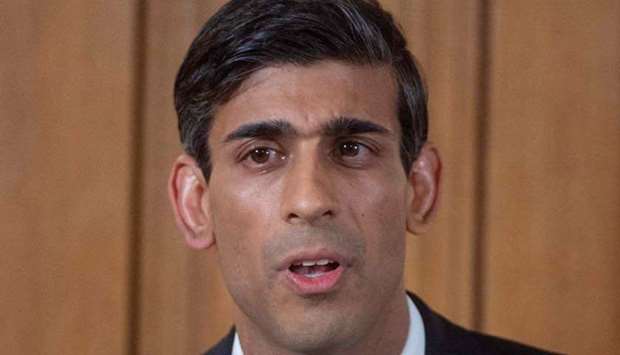Pressure is mounting on Rishi Sunak to extend his coronavirus bailout to the UK’s 5mn self-employed workers as a survey suggested half would keep working if they had symptoms.
On Friday, the chancellor said self-employed workers could access £94.25 a week in universal credit but he gave a far more generous deal to employees.
He is being lobbied to go further in coming days or risk public health by incentivising self-employed taxi drivers, couriers and other gig economy workers and zero-hours contractors to keep working while ill.
According to a survey carried out on Wednesday and Thursday, 47% of the self-employed and 51% in “atypical” work such as those on zero-hours contracts would feel obliged to work even if they had the virus.
The Populus survey for the Royal Society of Arts was carried out before Sunak’s announcement.
However, with unions and industry bodies insisting £94.25 a week is too little to live on, the number of people willing to work while sick is likely to still be significant. The survey found only 16% of all workers agree statutory sick pay, equivalent to the £95 offered so far, would meet their basic needs.
The government has indicated it wanted to do more for the self-employed but it is operationally difficult. Robert Jenrick, the communities secretary, said yesterday the government knows “this isn’t perfect”.
“The chancellor is going to keep reviewing the situation and see if there are further measures we can take,” he told the BBC’s Andrew Marr Show. “It isn’t easy, it’s not as simple as supporting those who are in employment.
“The purpose of our employment mechanism is to help continue the connection between employees and their business so once this is over – and it will be over – those individuals can return to their usual work and that link isn’t broken.
“It is operationally very difficult to create a scheme akin to that for the self-employed but we are reviewing this. If there are further steps we need to do, we will take them.”
Freelance groups, from actors and musicians to minicab and delivery drivers, have complained about what they said is unfair treatment.
Uber drivers said without help they “face the abyss”.
Their union, the United Private Hire Drivers, has warned the lack of help for the self-employed so far “shows the brunt of the burden of the pandemic is falling unequally”. It notes that in London alone, 94% of private hire drivers are from black and minority ethnic communities.
“We can’t afford to miss anyone right now,” said Anthony Painter, chief research and impact officer at the RSA, which said the “lack of universalism seriously risks public health”.
The RSA’s chief executive is Matthew Taylor, a former Downing Street adviser.
Taylor, who advised Theresa May’s government on reforming work in Britain, said the RSA saw “immediate universal income as a war necessity”.
After the crisis has passed a universal basic income could remain in place “as an economically secure path for workers in the 2020s”, it said.
“Universal healthcare and universal economic security go hand-in-hand,” Painter said. “It is clear from this survey that workers are already putting themselves in harm’s way, feel they are highly vulnerable, and could be suffering mental distress as a result of coronavirus and economic insecurity.
“This affects those in ‘atypical’ work such the self-employed, gig and temp workers more.”
The Association of Independent Professionals and the Self-Employed (IPSE) is calling for Sunak to offer self-employed workers 80% of their wages, as he has done for employees whose employers have no work for them.

Sunak: bailout extension urged
